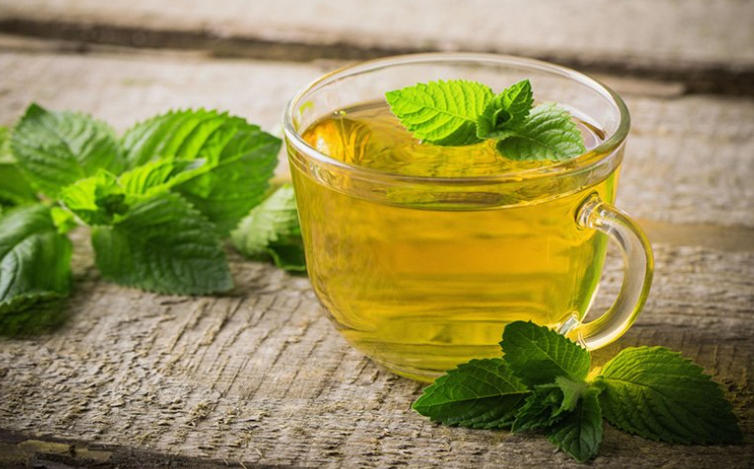Both children and adults suffer from dry coughs. In some cases, home remedies can be just as effective as medication in treating dry coughs in adults and children.
The following over-the-counter medications can be used to treat dry cough:
When you have a cold, over-the-counter (OTC) medications can usually help ease your cough. Most coughs can be relieved by using oral drops. To stop your cough faster, add drops containing menthol to the nebulizer.
Dry coughs are often treated with dextromethorphan, an OTC medication. Many OTC cough medicines are decongestants, which you may not need if you have a dry cough.

The doctor prescribed the following medicines:
There are many factors that can cause a dry cough, including allergies, environmental triggers, infections, and even medications (such as angiotensin-converting enzyme inhibitors).
Sleep apnea, gastroesophageal reflux disease (GERD), mesothelioma, and lung cancer are among the conditions that may cause chronic coughing. Even a mild dry cough should not be ignored. The following medications can be prescribed by a doctor to treat chronic dry cough:
You may benefit from taking oral antihistamines daily if you have hay fever to prevent allergies and treat allergic dry cough during pollen season.
Coughs related to asthma can be reduced by using asthma medications (such as long-acting bronchodilators and inhaled corticosteroids).
If you have an infection like pneumonia, your doctor will prescribe antibiotics.
An acid blocker may be prescribed if the cough is accompanied by acid reflux.
Dry cough treatment at home:
For dry cough, you’ll probably have to try a few home remedies before you find the one that works best for you. There is not enough research on all of these methods, and some are not suitable for babies and children.
1. honey
Honey can be used to treat dry coughs at home by adults and children over 1 year of age. The antimicrobial and anti-inflammatory properties of honey help reduce throat irritation. Compared to dextromethorphan, honey is as effective as diphenhydramine for treating dry cough in children.
Honey can be consumed several times a day alone or added to tea or warm water to treat a dry cough. If you need to watch your blood sugar levels, it is better to use another solution instead of honey. Under 1 year olds should never be given honey due to the risk of botulism.
2. The root of licorice
Phlegm is believed to be cleared up and coughing is reduced by drinking licorice root tea. Prepare this tea by infusing 2 tablespoons of licorice root in 240 ml of boiling water for 5 to 10 minutes. While licorice root tea is generally considered safe, long-term use may result in high blood pressure, menstrual irregularities, fatigue, headaches, water retention, and erectile dysfunction.
3. The herb marjoram
Traditionally, marjoram has been used to treat a wide range of diseases as a type of oregano. In addition to reducing coughs associated with asthma, bronchitis, colds, and whooping cough, this herb contains anti-inflammatory herbal compounds.
Three to four teaspoons of dried marjoram can be brewed in 240 ml of hot water and consumed three times a day. The herb marjoram is generally safe, but it may slow blood clotting and cause bruising and nosebleeds in people taking anticoagulants (blood thinners).
4. Turmeric
Turmeric contains a compound called curcumin, which has antiviral, antibacterial, and mild anti-inflammatory properties. In Ayurvedic medicine, turmeric has been used for centuries to treat arthritis and respiratory diseases. Research does not support many of these claims. Turmeric has been suggested as a treatment for dry coughs and for reducing asthma symptoms by taking it orally.
Turmeric and black pepper improve curcumin absorption. Add a teaspoon of turmeric and an eighth of a teaspoon of black pepper to orange juice or hot tea.
Turmeric is available as a spice and as a capsule. You may experience stomach upset, diarrhea, and nausea if you overdose on turmeric capsules.
5. ginger
Besides having antibacterial and anti-inflammatory properties, ginger also strengthens the immune system and relieves pain. Coughs can also be treated with ginger, which has long been used to treat nausea and upset stomach. It is believed that ginger suppresses the cough reflex by relaxing the smooth muscles of the airways.
You can use ginger tea with honey, chew ginger root, or buy ginger capsules from the pharmacy to treat dry cough. Ginger may cause stomach upset, heartburn, or diarrhea if consumed in excess.
6. Marshmallow root
In cough medicines, marshmallow root is used to relieve sore throats since ancient times. A mild dry cough can be relieved within 10 minutes by syrups and lozenges containing marshmallow root extract.
Antibacterial properties are found in marshmallow root. Furthermore, its flavonoid content soothes the burning sensation in the throat and reduces inflammation by releasing a viscous and gel-like substance called mucilage.
Dry cough can be treated with marshmallow tea. It is generally considered safe to consume marshmallow on a long-term basis, despite the lack of research on its risks. Blood clotting and blood sugar may be affected by marshmallow.

7. Peppermint
By numbing the nerve endings in the throat, peppermint reduces pain and treats coughs. Additionally, mint has antibacterial and antiviral properties and can relieve congestion.
Drinking peppermint tea or taking mint pills are two ways to take peppermint. To treat a dry cough at night, drink peppermint tea right before bed. Additionally, peppermint oil can be used as an aromatherapy oil.
8. Masala tea
Dry coughs and sore throats are treated with masala tea in India. Cloves and cardamom are two antioxidants found in masala tea. It is also prepared with cinnamon, which has anti-inflammatory properties.
9. capsaicin
Chili peppers contain a compound called capsaicin, which reduces chronic coughing. Cayenne pepper tea or capsules can be used to benefit from capsaicin’s properties. Capsaicin should not be used to treat dry cough in children.
10. Thyme
Since the Black Death, thyme has been used medicinally in Europe. Thymol, a compound in this plant, has antispasmodic properties and can help relax the smooth muscles of the throat.
In moderation, thyme tea is safe to consume. To reduce coughs, steep 3 to 4 teaspoons of dried thyme in 240 ml of boiling water and add honey.
11. garlic
Mild antiviral, antibacterial, and anti-inflammatory properties are associated with it. Moreover, its regular consumption lowers blood pressure and strengthens the immune system. Garlic is recommended to treat the dry cough associated with colds, but research results are inconsistent.
12. Eucalyptus aromatherapy
Aromatherapy uses essential oils to soothe and heal the body. Dry coughs can be treated with eucalyptus oil since it acts as a decongestant.
You can add eucalyptus to diffusers, spritzers, and inhalers, or you can add a few drops to hot water and inhale the steam. Sleep better if you scent your room with eucalyptus if your cough keeps you awake at night.
13. eat
The use of a vaporizer or humidifier can help solve the problem of dry coughs caused by dry air. Put a humidifier in your room if the air in your home is dry to reduce dry coughs.
14. Purifying the air with an air purifier
Dust and smoke are cough triggers that are removed by air purifiers. In addition, they reduce allergens such as pet dander and plant pollen. Whether your cough is caused by environmental toxins or an underlying illness, breathing in clean air helps treat a dry cough and sore throat.
15. Salt water gargles
A warm salt water gargle soothes a sore throat and kills bacteria in the mouth and throat. Gargle with warm water several times a day after dissolving one teaspoon of salt in one large glass. Young children who may swallow salt water should not be treated with this method.
In a study, gargling salt water three times a day reduced the duration of cough caused by a cold by 2.4 days and hoarseness by 1.7 days. Gargle with salt water immediately after brushing your teeth if you wake up with a sore throat at night.
16. Modification of diet
An allergic reaction to food can cause a dry cough. Don’t eat certain foods if they make you cough. Find out which foods and drinks are causing your cough by writing them down. Coughing is more likely to occur when you have the following conditions:
You may be able to relieve your respiratory allergy symptoms by avoiding foods that contain histamine, such as smoked meats, chocolate, dried fruits, and strawberries.
Chronic coughs can also be caused by acid reflux. You should avoid high-fat foods, acidic foods (including tomatoes), chocolate, caffeine, and spicy foods if you have this disease.
Chronic dry cough treatment:
The cough is one of the symptoms of covid-19 that can persist for weeks after the infection is gone. Most patients report a persistent dry cough during recovery, but some report a wet cough with a lot of phlegm.
Coronaviruses affect the vagus nerve, which controls the cough reflex, causing the persistent cough associated with Covid-19. Corona virus interactions with the vagus nerve of the airway and virus-induced inflammation of the nervous system are considered to be the primary causes of cough in patients. During recovery, the body may try to clear excess secretions by coughing.
Treatment at home:
Covid-19 coughs are persistent and bothersome, but they can usually be treated at home with a few home remedies. Try these solutions if you have a dry cough caused by Corona virus:
Use incense; inhale steam 2-3 times a day to loosen mucus and reduce coughing.
For the immune system to be able to recover, get enough sleep and sleep for 7 to 9 hours at night.
Avoid coughing by placing your head and chest higher than your legs when sleeping. This prevents airway obstruction.
Stay hydrated when recovering from a viral illness, including COVID-19; staying hydrated is one of the most important steps.
Warm ginger tea with honey helps to treat coughs and sore throats.
Warm milk containing turmeric soothes the throat and acts as an excellent expectorant.
Sit up straight, place one hand on your stomach and the other on your chest, and do diaphragmatic breathing. Breathe deeply through your nose to expand your belly. Expel the air through your mouth.
Consult your doctor if home remedies do not relieve your cough.

It’s time to see a doctor:
Usually, a dry cough will go away on its own or with home remedies, but if it is accompanied by any of the following symptoms, you should consult a doctor:
Difficulty breathing
wheezing
Chest pain
back ache
Fever
Shivering
Coughing up blood
For chronic dry cough treatment, see your doctor if your cough doesn’t go away completely within 2 months or gets worse.


